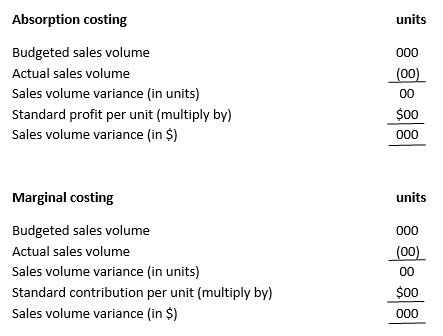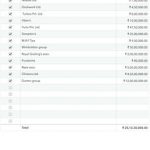
Importantly it provides automatic spot price calculations of the exchange rate between the cryptocurrency and the fiat currency at the time the transaction occurred. Plus, with comprehensive integrations with Quickbooks, NetSuite, Sage, and Xero, as well as support for over 200 blockchains, exchanges, custodians, and DeFi protocols, Bitwave is the go-to choice for sophisticated financial organizations. And with our unparalleled support, including deployment and integration services, custom reporting, and expert advice, Bitwave is the ultimate solution for managing your digital assets.
This allows businesses to have a comprehensive view of their assets and transactions, making it easier to track and manage them. In addition, API synchronization can help businesses comply with various regulations, such as those related to tax and accounting, like filling accurate and complete reports to the IRS, for example. Here, we discuss the 10 must-have features that every digital asset accounting and bookkeeping platform should have – and why Bitwave is the only solution that meets them, no matter where an organization falls on the digital asset maturity curve. 2022 was a pivotal year for enterprise adoption of digital assets, with major developments like Ethereum’s switch to proof-of-stake and FThe Financial Accounting Standards Board (FASB) proposed new accounting rules for organizations holding crypto.
International Journal of Accounting Information Systems
One of the main benefits of a digital asset accounting solution is that it can automate the process of data collection and integration. This saves time and reduces the risk of errors, which can be costly in the highly volatile world of digital assets. In addition, a crypto accounting solution can help businesses comply with various regulations and ensure that their accounting practices align with industry standards. Lastly, data reconciliation refers to the ability to reconcile off and on-chain data sources. It is one of the biggest challenges facing organizations as they adopt digital assets.
Strengthening trust in the profession
Please do not copy, reproduce, modify, distribute or disburse without express consent from Sage.These articles and related content is provided as a general guidance for informational purposes only. These articles and related content is not a substitute for the guidance of a lawyer (and especially for questions related to GDPR), tax, or compliance professional. When in doubt, please consult your lawyer tax, or compliance professional for counsel. Sage makes no representations or warranties of any kind, express or implied, about the completeness or accuracy of this article and related content. When you leave a comment on this article, please note that if approved, it will be publicly available and visible at the bottom of the article on this blog.
Explore Our Solutions
At the core of the blockchain, ideally, are immutability, verifiability, instantaneous transmission of internal vs external financial reporting information, and the anonymity that can be granted depending on the organization in question. On top of these characteristics, which make the blockchain different from other existing options in the marketplace, there are specific use cases and implementation steps that are already making this technology differentiated from existing market options. Alongside other automation trends such as machine learning, blockchain will lead to more and more transactional-level accounting being done – but not by accountants. Instead, successful accountants will be those that work on assessing the real economic interpretation of blockchain records, marrying the record to economic reality and valuation. For example, blockchain might make the existence of a debtor certain, but its recoverable value and economic worth are still debateable. And an asset’s ownership might be verifiable by blockchain records, but its condition, location and true worth will still need to be assured.

SoftLedger, the real-time cloud accounting platform enabling accountants and developers to easily manage multiple entities, integrate with other systems, and close their books faster. Blockchain has the potential to enhance the accounting profession by reducing the discover more about cause branding vs cause marketing costs of maintaining and reconciling ledgers, and providing absolute certainty over the ownership and history of assets. Blockchain could help accountants gain clarity over the available resources and obligations of their organisations, and also free up resources to concentrate on planning and valuation, rather than recordkeeping.
A comprehensive crypto accounting solution should, at a minimum, have the ability to reconcile data from internal, external, and on-chain systems (sometimes referred to as triple-legged data reconciliation). Introductory pricing accounting policies definition examples starts at less than $100 a month and ranges to over $750 a month depending on the product’s features, number of transactions, users, wallets, and exchanges supported. Another important feature of an enterprise-grade digital asset reporting platform is the ability to export raw data and run conditional scenarios. This allows businesses to analyze their data in more detail and explore different scenarios.
- They have the opportunity to guide and influence how blockchain is embedded and used in the future, and to develop blockchain-led solutions and services.
- Plus, with comprehensive integrations with Quickbooks, NetSuite, Sage, and Xero, as well as support for over 200 blockchains, exchanges, custodians, and DeFi protocols, Bitwave is the go-to choice for sophisticated financial organizations.
- To become truly an integral part of the financial system, blockchain must be developed, standardised and optimised.
This allows businesses to have a comprehensive view of their digital assets and helps them make informed decisions. Enterprise-grade crypto accounting software needs to include robust payment processing functionality to support accounts payable and accounts receivable operations. For accounts payable, it is important for businesses to have the ability to pay vendors with digital assets. This can be done using a payment processing platform that allows businesses to send bulk payments with different amounts to different addresses.
Xero is an online accounting software platform that allows businesses to see their cashflow in real-time. Cryptoworth tracks crypto , connects wallets and exchanges and tracks transactions and streamlines bookkeeping operations. There are a few characteristics of blockchain technology that make it unique and differentiated versus other market options that employ decentralized ledger technology.
Workday provides unified finance, human resources and student/faculty lifecycle management cloud applications designed for the way people work in today’s organizations. The changing forces of the business landscape, including blockchain, will inevitably have an impact on the accounting profession. Now that you have a better understanding of what blockchain is, you can move into focusing on the three ways it will transform the profession and be ready for the coming transformation. With the increased access to your client’s data and more efficient audits, the door will be open for higher value and highly insightful advisory services. This is where blockchain will help drive the change in the profession and open up the doors to being able to provide true value to your clients. Blockchain as a technology is often spoken about, especially in practitioner publications and conversations, as if it was just one option, tool, or application.